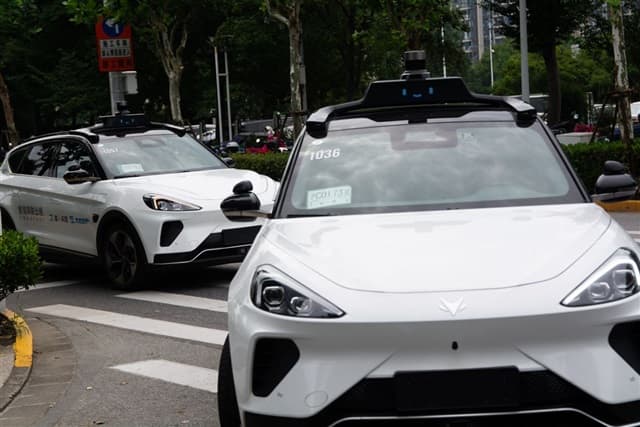We're loading the full news article for you. This includes the article content, images, author information, and related articles.
Chinese automakers, particularly BYD, are rapidly advancing their autonomous driving technology, directly challenging Tesla's market leadership with sophisticated and often more affordable driver-assistance systems. This competition is intensifying the global EV and self-driving race.

Shenzhen, China Chinese electric vehicle (EV) manufacturers, led by industry giants like BYD, are making rapid and significant advancements in the global race for autonomous driving technology. This progress poses an increasingly formidable challenge to Tesla's long-held leadership in the space. Having already surpassed Tesla in the production of affordable EVs, these Chinese companies are now aggressively rolling out sophisticated advanced driver-assistance systems (ADAS), often at a fraction of the cost, signaling a major shift in the competitive landscape.
BYD, for example, made headlines earlier this year by offering its “God's Eye” ADAS package for free on certain vehicle models, a direct move to undercut Tesla's Full Self-Driving (FSD) option, which is priced at nearly $9,000 in the Chinese market. Furthermore, analyses suggest that BYD's hardware costs for systems incorporating both radar and lidar sensors are comparable to Tesla's camera-only FSD hardware, challenging Tesla's strategy of omitting these sensors to save costs. This cost efficiency is partly driven by the massive economies of scale and intense local competition within China's booming EV market.
The mounting competitive pressure from Chinese firms was reportedly a key factor in Tesla's strategic pivot away from a mass-market $25,000 EV, shifting focus instead towards developing self-driving robotaxis. However, Tesla faces significant operational hurdles in China, including data regulations that prevent it from using data collected by its cars in China to train its FSD AI models globally. In contrast, Chinese companies like BYD and Huawei (in partnership with Seres for the Aito M9) are rapidly accumulating vast amounts of road-test mileage within China, which is crucial for refining their autonomous systems. Some Chinese systems are already offering unsupervised driving capabilities in specific urban areas, a technological step that Tesla has yet to release broadly to its customers. This dynamic illustrates the intensifying geopolitical dimension of the tech race, particularly between the US and China, in the critical field of future mobility.
Keep the conversation in one place—threads here stay linked to the story and in the forums.
Sign in to start a discussion
Start a conversation about this story and keep it linked here.
Other hot threads
E-sports and Gaming Community in Kenya
Active 9 months ago
The Role of Technology in Modern Agriculture (AgriTech)
Active 9 months ago
Popular Recreational Activities Across Counties
Active 9 months ago
Investing in Youth Sports Development Programs
Active 9 months ago